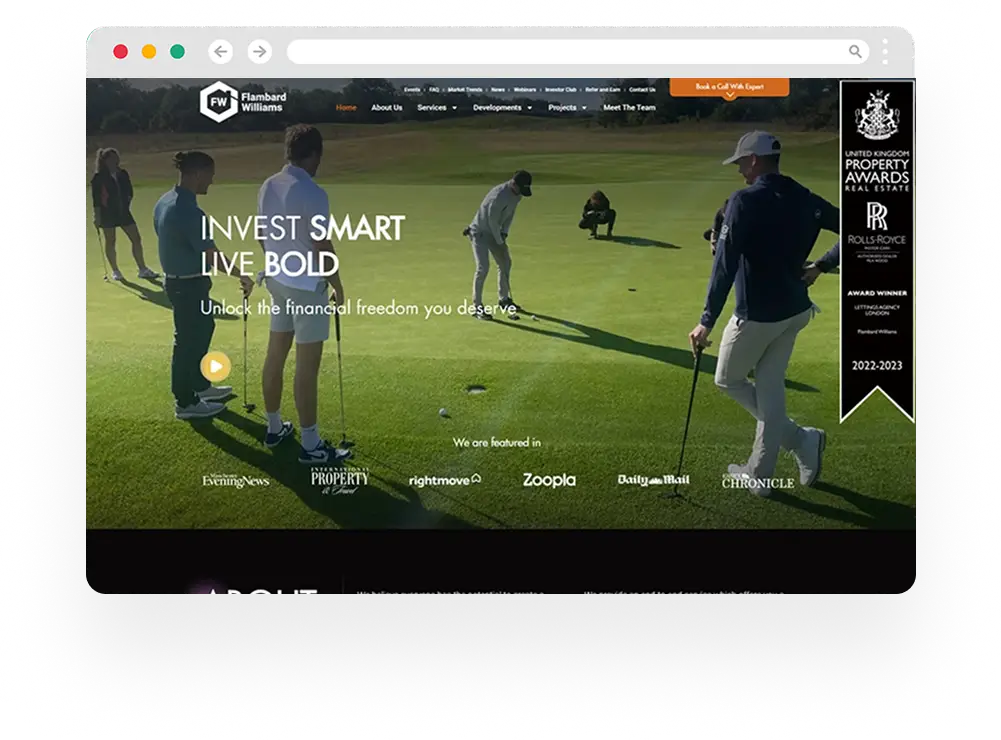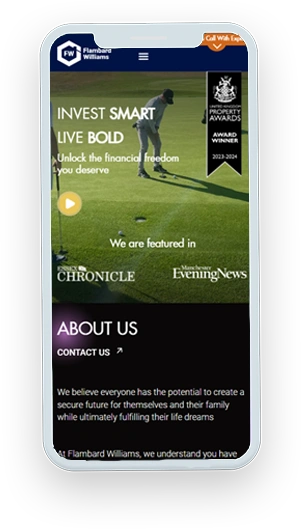Impact of Artificial Intelligence in Marketing: 2025 and Beyond


Impact of AI in Marketing
Table of Contents
Serious about growing your business? Let’s plan exactly how to get you more leads, sales, and results—faster.
What worked in your last festive campaign might not work this time around.
In marketing, staying still means falling behind. You’ve got to keep innovating and trying new approaches.
Today’s marketers are expected to know their audience inside out, deliver hyper-personalised content, stay on top of trends, and somehow do it all at once.
This is where AI in marketing steps in.
Imagine having a super-smart assistant working behind the scenes 24/7.
An assistant that analyses customer behaviour, writes copy, schedules posts, personalises experiences, and even predicts what your audience wants before they know it themselves. That’s the power of artificial intelligence in marketing.
87% of marketers already use AI to make their campaigns smarter, and 68% depend on it daily.
Why?
Because the impact of AI in marketing is too big to ignore. It’s helping brands show up at the right time, with the right message, to the right people.
Every. Single. Time.
But at the same time, there are important things to watch out for, especially related to ethical concerns and potential risks.
In this article, we are going to uncover-
- Positive and Negative impacts of AI in marketing
- Some Real-World Use Cases
- Key Areas Where AI Is Transforming Marketing, and
- Future Trends in AI and Marketing
So, let’s get started!
Marketing Research & Strategy
We help you understand your market and build smart strategies to attract more customers and grow faster.
- Detailed research into your competitors, customers, and market
- Custom marketing and growth plans that drive real results
- Clear action steps to increase traffic, leads, and sales

ADWORDS ROI
Cut Ad spend

Positive Impact of AI in Marketing
1. Getting More Done Without Burning Out
One of the biggest perks of using AI? It saves you serious time. Whether you’re a solo entrepreneur or part of a growing team, AI helps clear your plate so you can focus on big-picture strategy.
- Email Campaigns: AI tools can send emails at just the right time, like when someone abandons their cart or browses your latest collection.
- Social Scheduling: Post content automatically when your audience is most active (goodbye, guessing games).
- Content Creation: Tools like ChatGPT or Jasper can whip up draft blogs, ads, or product descriptions in minutes.
Here is an updated report of Hubspot.

Source: HubSpot
HubSpot found that 86% of marketers say AI saves them at least an hour a day on creative tasks. That’s over 5 hours a week back in your hands.
2. Delivering Personalised Customer Experiences
Ever feel like an ad was speaking just to you? That’s AI working its magic.
- Product Recommendations: Whether it’s Amazon nudging you toward the latest headphones or Spotify suggesting your next favorite song, AI uses your habits to make spot-on suggestions.
- Smart Websites: Some brands use AI to actually change how their website looks or what content shows up based on who's visiting.
3. Smarter Insights, Better Decisions
When you’re trying to figure out who to market to or what campaign will perform best, AI steps in with data-driven predictions. It’s like having a crystal ball (but with charts and dashboards).
- Customer Segmentation: AI breaks down your audience into smart groups, like college students who love fitness gear or parents shopping for STEM toys.
- Sales Forecasting: Want to know what your best-selling product will be next quarter? AI’s got a prediction.
Note: According to McKinsey, 78% of businesses are using AI in at least one area, and marketing is one of the top spots.
Digital Marketing, SEO & PPC
- SEO to boost rankings and capture high-intent, AI-driven traffic
- Performance Marketing to run ROI-focused campaigns that convert
- Content Marketing to drive clicks, earn links, and build authority

4. Boosting ROI and Revenue
At the end of the day, AI helps your budget go further. It ensures you’re putting your ad dollars where they’ll actually get results.
- Better Conversion Rates: Tailored emails, smart timing, and relevant offers = more clicks and conversions.
- Lower Costs: Automating time-heavy tasks means you’re doing more with fewer resources.
Synthesia reports that AI can boost leads by up to 50%—that’s not just helpful, it’s a game-changer for growth-focused businesses.
Real-World Use Cases
I’ve seen companies big and small use AI to make marketing smarter, and the results are impressive.
Let’s dive into some examples that show how AI is making waves across different industries. These cases will give you a clear picture of what’s possible.
| Industry | Company | AI Use Case | AI Technology Used | Impact |
|---|---|---|---|---|
| E-commerce | Amazon | Product recommendations | Machine learning, behavioral tracking | 35% of sales are driven by AI-powered suggestions. |
| Retail | Sephora | Virtual makeup try-on | AI + Augmented Reality | Sephora saw a 25% increase in add-to-basket rate and a staggering 35% increase in conversions. |
| CPG | Coca-Cola | Real-time personalised ad targeting | Predictive analytics, trend & weather tracking | AI-generated personalised content resulted in a 20% increase in engagement. |
| Small Business | Local Bakery | AI chatbot for orders & customer service | Chatbot automation | 53% of small businesses now use AI tools for customer service |
Negative Impact of Artificial Intelligence in Marketing
Well, AI is amazing.
I totally agree.
It helps us automate tasks, personalise experiences, and make data-driven decisions like pros.
But,
It’s not all smooth sailing.
If you’re thinking about weaving AI into your marketing strategy, it’s important to know where the bumps in the road are.
Here’s what you need to watch out for
1. Privacy Worries Are Real
AI runs on data, and that makes privacy a big deal.
- A recent KPMG report found that 63% of consumers are worried that generative AI might mishandle their personal data.
- And it’s not just a niche concern, 86% of people in the U.S. say they’re worried about how their data is being used.
So,
If you’re collecting customer info (even just emails and preferences), make sure you’re handling it with care and staying compliant with privacy laws like GDPR or CCPA.
Remember, transparency always builds trust.
2. Integration Isn’t Plug-and-Play
Integrating AI into your system is not always easy-peasy!
It’s not always as easy as clicking “install.”
More than 90% of businesses still struggle to plug AI into their existing systems. It often takes serious time, a chunk of budget, and some top-tier IT brainpower to get things running smoothly.
Therefore, I would personally recommend you to take it step by step.
Start with one use case (like AI-driven email automation) and build from there. And make sure your team’s trained and ready.
3. Bad Data = Bad Decisions
Before moving further, you need to know that AI is exact replica of the data you feed it.
In simple terms, AI is only as smart as the data you feed it. If that data is outdated, messy, or flat-out wrong, your AI is going to make some really bad calls.
According to certain global research, only 12% of companies say they fully trust the quality of their data for AI purposes.
Businesses can burn up to 6% of their revenue due to any wrong decision made by AI based on poor data.
So, what to do?
You need to be super careful about the data. Invest in clean, organised, and relevant data. This can be your only solution to gain a better knowledge of user behavior and better marketing copy creation.
4. Don’t Ditch the Human Touch
59% of customers say they feel like companies are losing that “human touch” because of AI. And honestly, can you blame them?
Imagine, you’re facing an issue and need help. At that moment, would you rather explain your problem to a chatbot or talk to a real person who actually gets it?
Exactly.
Sure, AI tools and chatbots are great for quick answers and simple tasks. But when it comes to something emotional, complex, or personal, nothing beats a human conversation.
That’s the key.
AI can always enhance the human experience, but can never replace it.
Let me give you a great example here,
Earlier, when I had an issue with my mobile SIM, I had to go through a long and annoying IVR menu on the customer care call. Press 1 for this, press 2 for that….
It always felt like a forever task.
But a few days back, when I had another issue and called again to customer care, I noticed a big change.
An AI system asked me to say my problem after the beep. It understood what I said and quickly connected me to the right expert who could actually solve it.
I loved it.
No long wait, no guessing which button to press. Just straight to the person who could help.
Remember,
AI isn’t here to take over. It’s here to make things smoother, faster, and more efficient.
Key Areas Where AI Is Transforming Marketing
The use of artificial intelligence in marketing is reshaping how brands understand, engage, and convert their audiences.
From hyper-personalised content to predictive analytics, AI applications in marketing are making strategies smarter, faster, and more effective across every channel.
Here are some of the key areas where AI and marketing are creating a serious impact—and what you should know to stay ahead:
1. Customer Understanding & Segmentation:
AI enables marketers to segment audiences more effectively. According to a McKinsey study, companies leveraging advanced data analytics are 23 times more likely to acquire customers and 19 times more likely to be profitable.
2. Real-Time Behaviour Tracking:
AI tools track customer behaviour in real-time, enabling instant tweaks to your marketing strategy. This level of agility creates more personalised experiences and boosts customer engagement.
One of the most powerful tools in this space? AI-powered chatbots. They deliver 24/7 support, handling queries with speed and accuracy while reducing calls, emails, and chat volumes by up to 70%.
3. Tailored Emails and Ads:
AI enhances email marketing effectiveness. According to the stats of ArtSmart.ai, using AI for email personalisation has led to a 13.44% increase in click-through rates for marketers.
4. Conversational Lead Nurturing:
AI chatbots are increasingly used for lead generation. Check out what the head of marketing at Warmly said: “More marketers use generative than predictive AI. 36% of marketers are currently using AI chatbots for handling their day-to-day marketing tasks.”
5. Ad Optimisation on Autopilot:
AI continuously tests and refines ad creative elements. AI-powered ad optimisation increases return on ad spend (ROAS) by 72%.
6. Fast Content Generation:
AI tools like ChatGPT enable rapid content creation. 85% of marketers use AI tools for content creation, showing AI’s crucial role in boosting efficiency and scaling output.
7. Visual and Video Content Creation:
AI streamlines the creation of visual content. According to Leonardo AI, 53% of businesses plan to use AI for image generation, revolutionising visual content creation.
8. Predictive Analytics:
AI predicts customer actions based on past behavior. AI-driven predictive analytics enhances ad targeting, optimises budgets, and forecasts consumer behavior for smarter advertising decisions.
9. Voice & Visual Search Optimisation:
AI adapts content for voice and image-based search. As per recent marketing surveys, voice and visual search usage is rapidly increasing, with voice searches accounting for approximately 20% of searches on the Google App.
Future Trends in AI and Marketing
AI is changing the game — fast.
I work with marketing tools every day, and I can tell you this: if you’re not paying attention to AI, you’re already behind.
By 2030, 70% of companies are expected to use AI in some way.
AI is set to add $15.7 trillion to the world economy, and it’s going to shake up how we work, sell, and connect.
Sure, automation might replace 85 million jobs by the end of 2025, but AI will also create 97 million new ones.
If you learn how to use these tools now, you’ll be ahead of the curve.
By the end of 2025, 90% of online content could be made by AI. That means writing, video scripts, social media posts — all faster, smarter, and more personal.
In fact, reports from Andava stated that AI-powered marketing tools are expected to generate $107.5 billion in revenue by 2028.
Personally, I use AI to brainstorm headlines, plan campaigns, and test ad copy.
And I feel that,
It doesn’t replace me — it amplifies what I do.
Voice assistants, too, are expected to drive $164 billion in transactions by the end of 2025.
Chatbots are going to handle most customer service for 1 in 4 businesses by 2027.
So, what does this clarify?
In the present era, you must know one thing for sure, that’s
AI isn’t just a tool, it’s becoming the backbone of how we reach people. Businesses that use AI the right way — with clear strategy, trust, and transparency — will definitely witness 10x more value by 2026.
Want to 10x your revenue leveraging AI in Marketing?
If you’ve made it this far, you’re clearly not here to play small. You’re building something real!
Now that you’ve got a taste of how AI can supercharge your marketing, it’s time to take the next step and transform how you approach things.
At Credofy, we’ve spent 12 years helping businesses like yours stop guessing and start getting results.
We’ve helped clients craft smarter strategies and double their conversion rates.
Now it’s your turn.
Book your free 1-hour strategy session, and we’ll map out a plan that actually turns your leads into loyal customers.




